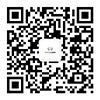First: Customs clearance in the name of the American consignee
In this way, the American consignee provides the POA (that is, PowerOf Attorney: power of attorney) to the forwarder's American agent, and the Bond of the American consignee is also required
Second: Customs clearance in the name of the shipper
In this way, the consignor provides the POA (PowerOf Attorney: power of attorney) to the freight forwarder at the port of shipment, and the freight forwarder then transfers it to the agent at the port of destination, and the American agent helps the consignor to handle the importer's customs registration number in the United States. At the same time, the shipper needs to purchase Bond.
Attention:
1. No matter which of the above two customs clearance methods is used, the Tax ID of the American consignee /consignee (also known as IRS No.) must be used for customs clearance. The American consignee /consignee must provide the Tax ID to clear the customs.
2. IRS No. The Internal Revenue Service No. That is, a tax identification number registered by the US consignee in the relevant US authorities.
3. You can't clear customs in the United States without Bond.
4, no TaxID, in the United States can not be cleared.
What about Chinese customs clearance?
Commodity value
2. Express item name and value
3. Quantity of goods
For example, the amount of the same type of nutritional supplements exceeds one bottle, the total dose is enough for one person to take six months to one year, and the customs may consider it to be personal use. On the contrary, if the number of the same watch is more than one, the customs may consider it to be for resale purposes and may be restricted from customs clearance.
The above is a general principle, not an absolute law, for reference only. The specific determination of the customs shall prevail.
4. Tariffs
5. Copy of recipient's supporting document for customs declaration purposes
According to the revised Measures of the Customs of the People's Republic of China on the Supervision of Inbound and Outbound Express Cargopments, which came into effect on April 1, 2006, when declaring inbound and outbound express shipments of personal items, copies of the recipient's supporting documents must be provided to the Customs.


